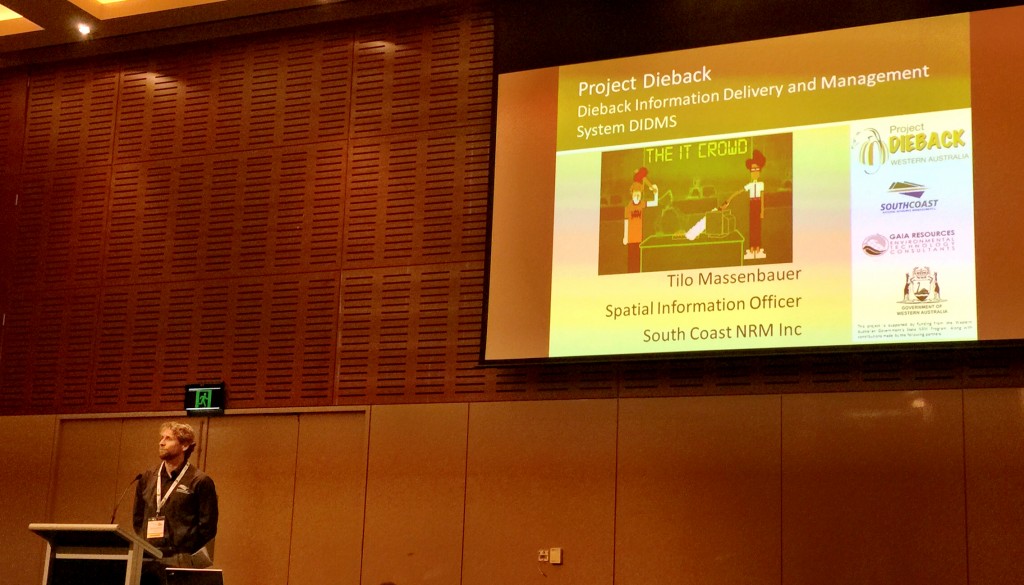Tuesday was an interesting day. I attended the Australasian Plant Pathology Society (APPS) conference in Fremantle and presented a paper about monitoring Marri canker in the south west, featuring The Marri App (the paper and accompanying powerpoint presentation can be found below).
 Simultaneously, a related article in the Australasian Plant Conservation Network journal was published. Both these papers discussed the information technology underpinning citizen science engagement in monitoring Marri decline syndrome identified as being caused by two related fungal pathogens. Specifically, the papers covered the development and utilisation of The Marri App and also the key role of Gaia Resources’ Biological Data Recording System, and both these papers were co-authored by colleagues from the Centre of Excellence for Climate Change Woodland and Forest Health at Murdoch University.
Simultaneously, a related article in the Australasian Plant Conservation Network journal was published. Both these papers discussed the information technology underpinning citizen science engagement in monitoring Marri decline syndrome identified as being caused by two related fungal pathogens. Specifically, the papers covered the development and utilisation of The Marri App and also the key role of Gaia Resources’ Biological Data Recording System, and both these papers were co-authored by colleagues from the Centre of Excellence for Climate Change Woodland and Forest Health at Murdoch University.
The two papers references are:
Alex R. Chapman, Trudy Paap, Cielito Marbus, Treena Burgess and Giles Hardy (2015). Utilising Citizen Science: communities monitoring Marri Canker incidence. Australasian Plant Conservation 24(1): 2-4.
Chapman AR, Paap T, Marbus C, Burgess TI and Hardy GESJ (2015). Utilising Citizen Science to Monitor Corymbia calophylla (Marri) Canker Incidence and Severity. Australasian Plant Pathology Conference Proceedings, Fremantle WA. paper powerpoint
It was also great to see Tilo Massenbauer from South Coast NRM give a talk about the Dieback Information Delivery and Management System (DIDMS), which is very much related to our work in the citizen science space. The DIDMS system is based on our Geographic Reporting and Information Database (GRID) product (more on that product can be found here), and Piers and Tilo are presenting today on the same topics for a presentation with the WALIS group.
 Tilo giving his talk about DIDMS at the APPS Conference
Tilo giving his talk about DIDMS at the APPS Conference
There’s a lot of interest in citizen science lately, and with Piers, James and Tracey heading to the State NRM Conference next week, you’ll also be hearing a lot more about GRID in the blog shortly!
Alex
Leave a comment below, or start a conversation on Facebook or Twitter.

Comments are closed.